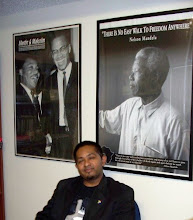
The occurrence of ‘Wally’s open heart surgery’ in August 2008 provided the world insight and eye witness to the complexities of such medical procedures. People who had no idea about the mechanics and detail of such an operation came face to face with the negative effects of unhealthy living and the required medical intervention. A heart overhaul is required when a heart has become dysfunctional.
While people’s hearts require overhaul, so do organizations. There is a need for an organizational overhaul that brings serious positive change. Organizations ranging from corporate, nonprofit, youth development, to religious have an impact on the lives of people and society. There are many Organizations these days which have struggles that bring them to a breaking point. Everything looks good on the outside but within they are perishing. Such organizations have an undeniable negative effect on its’ people and inevitably it ripples out into a greater negative societal effect. Organizations are required to take stock of their practices and organizational cultures, and pursue organizational development. The kind which has lasting impact on organizational ethics and morals, as well as the lives of their employees.
Consider people who work in the field of human resources. People in the supposed business of aiding the rights of employees in corporate companies. Unfortunately these human resource agents have expressed the soul killing process of becoming death tools of their executive boards’. Human resources are implicated in building cases that result in employees’ termination of contracts. Corporate organizations are frequently plagued with a working culture that operates like the mafia.
Such shrewd operations have also been noted in the nonprofit sector. There are many organizations that have undergone (major) magnanimous change. In some cases new leadership have not had the time to track the changes and keep up with the demands of new found leadership positions. In South Africa for example, the occurrence of black leadership coming into the influence of previously white lead organizations. Political and racial complexities are present and must be noted.
There are many leaders, managers and supervisors who are consumed by taking their own back. Selfish pursuit of personal luxury and comfort, have taken precedent over and above focus on people and their development. It has naturally led to several levels of misconduct, and abuse of people as well as further corruptions. In social critique and race constructs we speak of the Black elite who have risen to top ranks of leadership but are equally or even more disconnected from the plight of people in so called lower ranks of work, than their previous white predecessors.
While some industries and organizations have seen the rise of black leadership. There are many organizations that remained white and male, dominated in their staff compliment and their top level management structures - even after a fifteen year democratic South Africa. Organizations and workplaces that model inclusion within the workplace culture is quite frankly ignored. Drawing from the vast array of race, class and gender diversity in South Africa is not common practice. Leaders and influencers within organizations do not have an underpinning ideology or consciousness to pursue and develop diverse teams.
There is a call for people to take leadership in making a stand against the corruption, in the midst of organizations that are struggling to ensure that people are not diminished and disregarded. Furthermore we must ensure that we have a reforming of our societies, which are plagued by stressed and depressed people, and societies that are rife with unemployment, stark poverty, broken families and desperation.
Sick organizations; bring about troubled people, which further encourages a struggling society. In the study of organizations we learn of organizations who wield the power to control economic development, and the affect that economic development bears on the development of society. Today we live in a world where the disparity and gap between the rich and the poor is ever increasing. For example, Developed countries thrive off the primary resources of developing countries, while these developing countries try to reduce their Third World Debt.
According to Smith and Todaro , “For developing nations that possess greater resources and relatively more bargaining power, the phenomenon of dominance becomes manifested more in the tendency of the rich to get richer, often at the expense of the poor.”
Provided that we see, understand and recognize the desperation of our times, such desperate times require earnest and compassionate response. A response to bring lasting change is required.
Change grounded in a soulful commitment and social awareness must be considered to keep the heart beat of organizations beating for its people. We as concerned global citizens must agree that “sick organizations need an overhaul” to design, develop and deliver organizations that are concerned and committed to doing the work of social change. Organizations in minor and major forms - and people leading and influencing these organizations have the power to affect society positively. Organizational power brokers must consciously work toward such an end.



